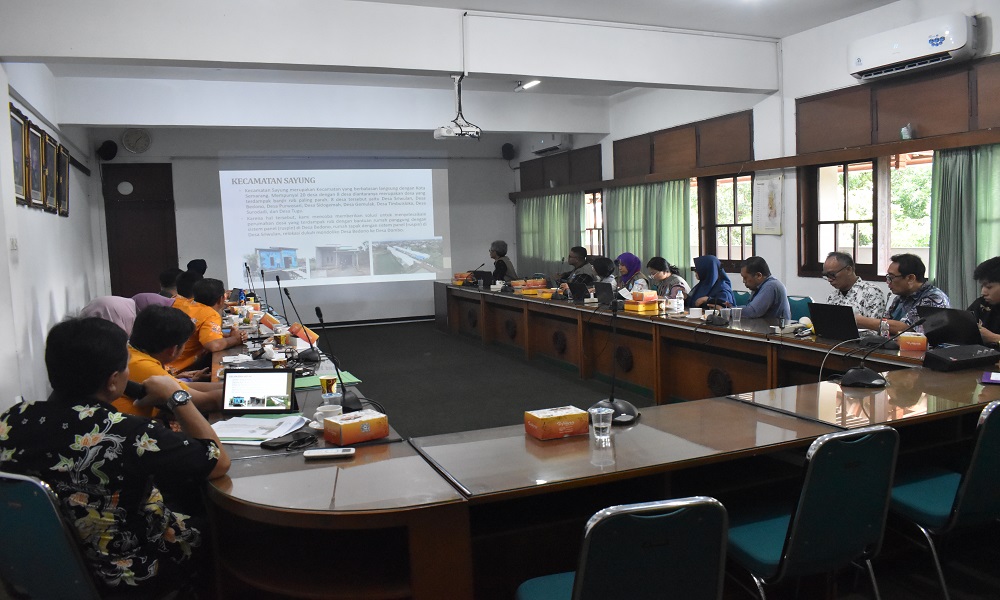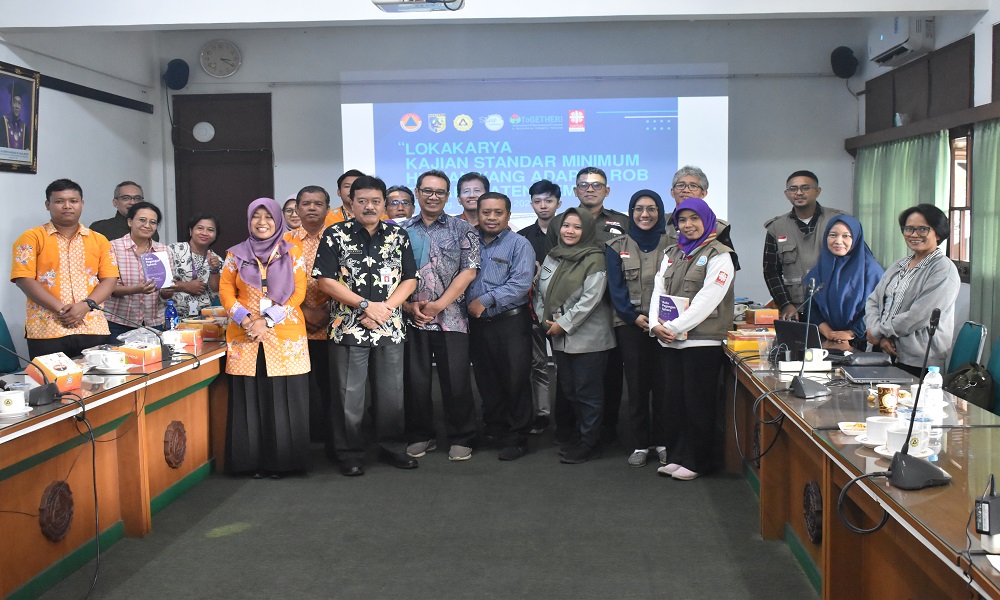
Wednesday (12/04/24) – Held at the Green Meeting Room, 4th Floor of the Michael Building, Soegijapranoto University Rectorate in Semarang, a concrete step toward addressing tidal flood threats in Demak's coastal areas took shape through a workshop titled Study on Minimum Standards for Adaptive Housing for Tidal Floods. The workshop was initiated by Yayasan SHEEP Indonesia (YSI) with funding support from Caritas Germany. The event, which involved multiple stakeholders such as the Research and Community Service Institute (LPPM) of Soegijapranoto University, the Demak Regional Disaster Management Agency (BPBD), and the Demak Housing and Settlement Area Agency (Dinperkim), served as a platform to build a collaborative framework for developing and implementing adaptive housing designs—both floating and non-floating. The event also fostered synergy among the government, academia, and the community to create innovative adaptation and mitigation strategies for tidal flooding in Demak Regency.
Moderated by Hariyoso, the event began with an introduction by Rina Wijaya, a representative from YSI Management, who outlined YSI’s vision and mission and shared insights from previous housing programs. Rina also explained the background of the “AMAN” (Adaptation and Mitigation for Tidal Flood Threats) program in Demak, which focuses on long-term solutions to address tidal flooding in coastal areas. The workshop consisted of three main sessions:
- Session One: Researchers from Soegijapranoto University, in collaboration with researchers from Sultan Fatah University in Demak and Palangkaraya University, represented by Ir. FX. Bambang Suskiyatno, M.T., presented an evaluation of floating house designs implemented by Dinperkim in Timbulsloko Village, Sayung Subdistrict, Demak Regency. They also shared their experiences with hydraulic stilt house designs developed by the research team. The findings of this evaluation provided a foundation for discussions on assessing the effectiveness of these designs for further adaptation.
- Session Two: The Head of the Demak Housing and Settlement Area Agency, Ir. Nanang Tasunar David Narutomo, M.M., as the keynote speaker, presented an overview of tidal flooding in Demak Regency and discussed the process of implementing housing support for affected communities, including updates on floating house designs developed by Dinperkim.
- Session Three: Tri Sulistyowati from YSI introduced the Sphere Handbook 2018 and its Minimum Standards for Shelter and Settlements. This session broadened participants’ perspectives on the minimum standards and criteria required to create dignified and livable housing for disaster or crisis-affected communities.

During the discussion sessions, three main topics emerged: the housing model to be developed as a new prototype for Demak, the selection of test locations for prototype applications, and the division of roles in the collaborative review process. Parsudi, a representative from Dinperkim, highlighted the challenges in encouraging community acceptance of new innovations, noting that many residents remain skeptical of external solutions, particularly when deemed irrelevant or costly. Responding to this, Hariyoso and Tri Sulistyowati from YSI emphasized that the program's success depends on collaboration from all stakeholders. They assured that community consultation and education would be prioritized to understand local needs and build awareness of the benefits and efficiency of adaptive housing designs. Dr. Mohammad Kusyanto, ST, MT, Rector of Sultan Fatah University, supported the initiative, stressing the importance of a communicative approach to help communities understand that the solutions not only mitigate risks but are also affordable for independent replication. At the conclusion of the discussion, three key agreements were reached as milestones for the program:
- Developing innovative designs for floating and amphibious houses as alternative solutions for adaptive housing.
- Planning site surveys for prototype applications.
- Allocating resources contributed by YSI, Dinperkim, UNIKA, and the Demak BPBD.

This workshop marks a significant first step toward delivering innovative and sustainable solutions for adaptive housing in response to tidal flooding. Through synergy among the government, academia, and the community, this program aims not only to reduce the risks posed by tidal flooding but also to improve the quality of life for affected communities in Demak's coastal areas.

